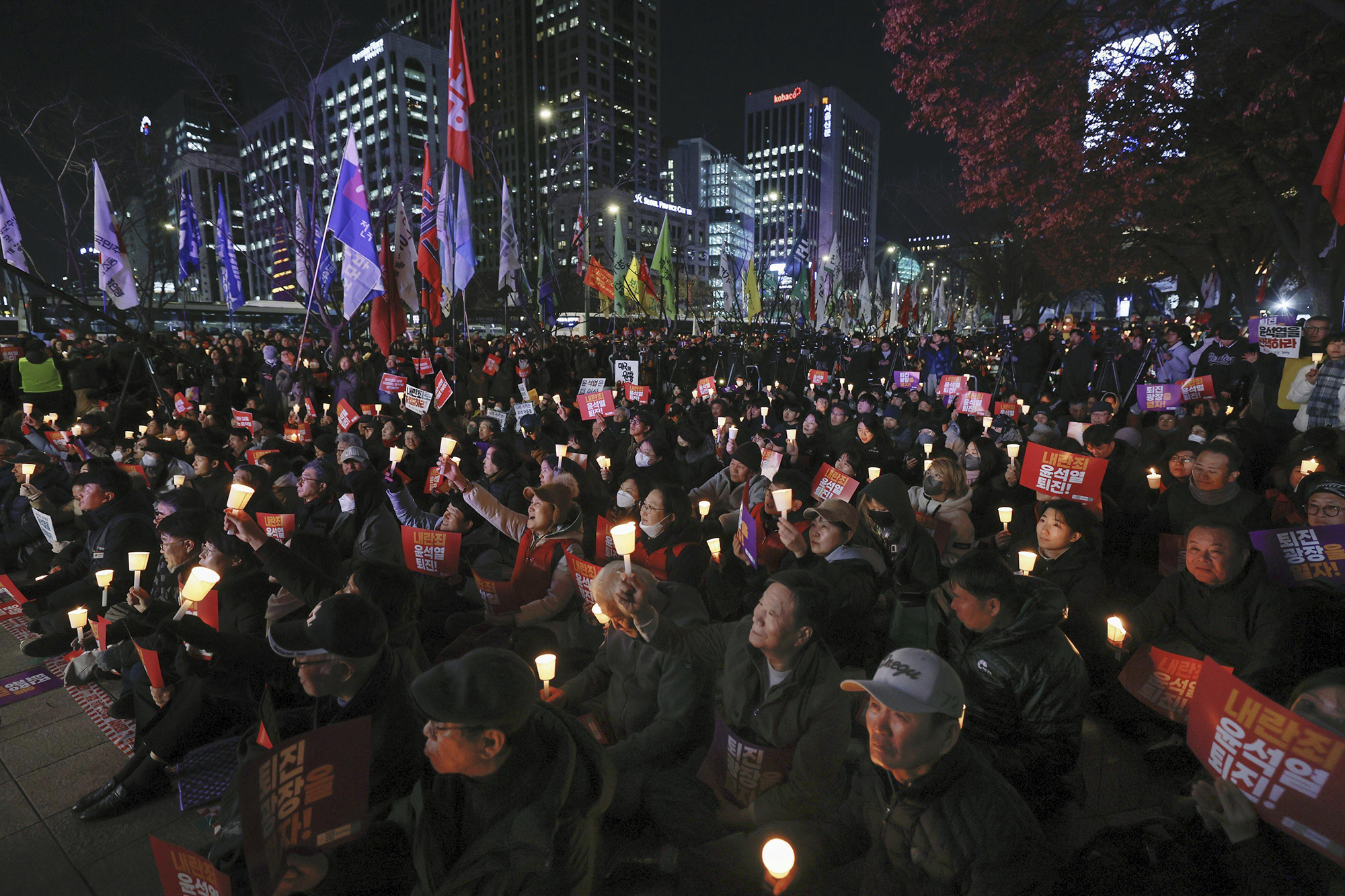Yoon’s arrest could mark the beginning of a prolonged period in custody, lasting months or longer, as he faces the possibility of imprisonment on potential rebellion charges linked to his imposition of martial law on Dec. 3
read more
Impeached South Korean President Yoon Suk Yeol arrives at the Corruption Investigation Office for High-ranking Officials in Gwacheon, South Korea. AP
South Korea’s impeached president, Yoon Suk Yeol, was formally arrested on Sunday, days after being apprehended in a massive law enforcement operation at his presidential compound in Seoul.
Yoon’s arrest could mark the beginning of a prolonged period in custody, lasting months or longer, as he faces the possibility of imprisonment on potential rebellion charges linked to his imposition of martial law on Dec. 3.
The National Assembly voided his short-lived declaration just hours after it was announced.
Yoon claimed he took the action because the liberal opposition, which has a legislative majority, was obstructing his agendas and even the approval of his budget. He described the opposition as North Korea sympathizers, “anti-state forces” responsible for “wreaking havoc” and the “main culprits of our nation’s downfall.”
Here is a timeline of events:
Jan. 19
The Seoul Western District Court grants law enforcement’s request for a formal arrest warrant for Yoon, citing him as a threat that could destroy evidence. His arrest triggers a riot by his supporters, who break into the court, smashing windows and equipment. Nearly 90 of them are arrested.
Jan. 15
Anti-corruption investigators and police raid the presidential compound and detain Yoon, more than six weeks after his ill-fated power grab. Yoon, the first sitting president to be apprehended, had been holed up in the Hannam-dong residence in the capital, Seoul, for weeks while vowing to “fight to the end” the efforts to oust him.
Jan. 14
The Constitutional Court held its first formal hearing in the case. The session lasted less than five minutes because Yoon refused to attend. The next hearing is set for Jan. 16.
Jan. 7
The chief of the presidential security service, Park Jong-joon, resigns.
Jan. 3
Scuffles occur on Jan. 3 when dozens of investigators were stopped from entering Yoon’s compound by presidential security forces, military personnel and vehicle barricades.
Dec. 31
Seoul Western District Court issues a warrant to detain Yoon for questioning.
Dec. 27
The National Assembly votes to impeach South Korea’s acting President Han Duck-soo over his unwillingness to fill vacancies on the bench of the Constitutional Court, plunging the country into further political turmoil.
Dec. 14
The National Assembly passes the motion 204-85, impeachingYoon. His presidential powers and duties are subsequently suspended and Prime Minister Han, the country’s No. 2 official, takes over presidential powers.
Dec. 12
Yoon defends his martial law decree as an act of governance and denies rebellion charges, vowing to “fight to the end” in the face of attempts to impeach him.
The National Assembly passes motions to impeach national police chief Cho Ji Ho and Justice Minister Park Sung Jae, suspending them from official duties, over their alleged roles in the enforcement of martial law.
Dec. 11
Kim Yong Hyun, the former defense minister, is formally arrested over his alleged collusion with Yoon and others in imposing martial law. The Justice Ministry says Kim was stopped from attempting suicide hours before a Seoul court issued his arrest warrant.
South Korean police send officers to search Yoon’s office to look for evidence related to the martial law introduction but they are blocked by Yoon’s security team from entering the compound.
Police detain the national police chief and the top officer for Seoul over their roles in enforcing Yoon’s martial law orders.
Dec. 10
Kwak Jong-keun, commander of the Army Special Warfare Command whose troops were sent to parliament after Yoon declared martial law, tells lawmakers that he received direct instructions from former defense minister, Kim, to obstruct them from entering the National Assembly’s main chamber. He says Kim’s instructions were to prevent the 300-member Assembly from gathering the 150 votes necessary to overturn Yoon’s martial law order.
Kwak says Yoon later called him directly and asked for the troops to “quickly destroy the door and drag out the lawmakers who are inside.” Kwak says he did not carry out Yoon’s orders.
Dec. 9
South Korea’s Justice Ministry bans Yoon from traveling overseas as police, prosecutors and South Korea’s anti-corruption agency expand competing investigations into allegations of rebellion and other charges in connection with his martial law dec

